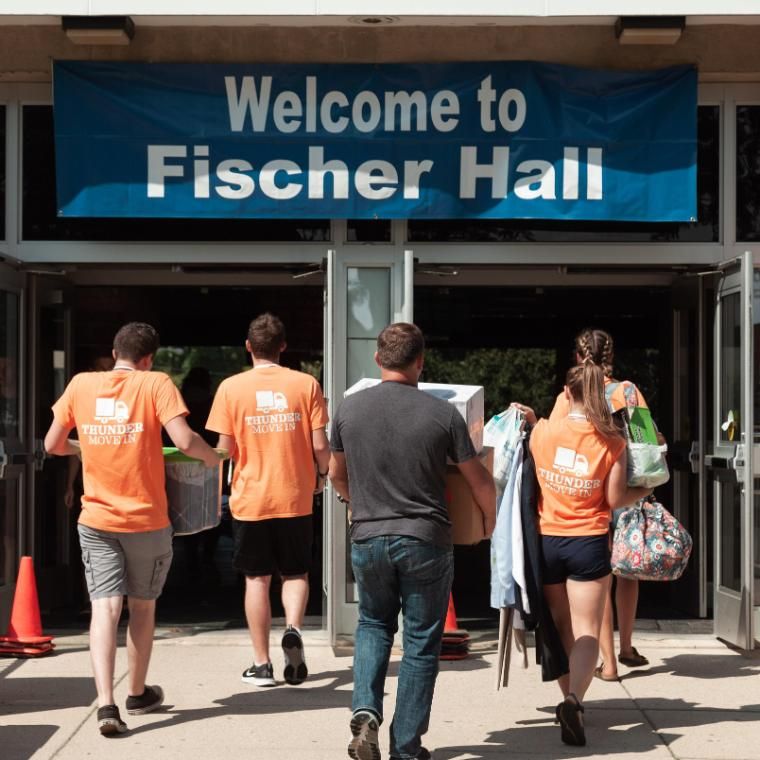Instructor: Brian Howell | Anthropology
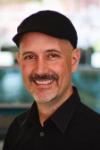 For most of human history it wasn’t really a question, but now it’s inescapable: who are you? Who is the “real you?”, what does it mean be an individual, a “self.” This class will use anthropological concepts and cross-cultural examples to think about this question as it relates to us. Asking “who am I?” is an existential question that can’t be answered without thinking about the communities in which we belong and the ones in which we don’t; we have to think about who is telling us the answers and who isn’t; we have to ask where are ideas about ourselves come from. This course will take the question of identity and use anthropological concepts to ask how we think about the “self,” how that idea came to exist, how it affects us now, and how we can think about this through the lens of the gospel. (2 credits, ANTH)
For most of human history it wasn’t really a question, but now it’s inescapable: who are you? Who is the “real you?”, what does it mean be an individual, a “self.” This class will use anthropological concepts and cross-cultural examples to think about this question as it relates to us. Asking “who am I?” is an existential question that can’t be answered without thinking about the communities in which we belong and the ones in which we don’t; we have to think about who is telling us the answers and who isn’t; we have to ask where are ideas about ourselves come from. This course will take the question of identity and use anthropological concepts to ask how we think about the “self,” how that idea came to exist, how it affects us now, and how we can think about this through the lens of the gospel. (2 credits, ANTH)

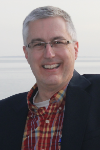 What happens when risk takers have a boat, a gun, and a little bit of intel?
What happens when risk takers have a boat, a gun, and a little bit of intel?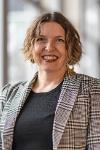 Which virus caused such facial scarring it ruined the marriage prospects of women across Europe, paved the way for European conquest of the New World, and was finally controlled with inoculation techniques that were known in Africa and Asia long before Europe? Which bacterium left its mark on ancient Egyptian mummies, was so romanticized in 18th century Europe that it drove beauty trends, and is still one of the three deadliest infectious diseases in the world in the face of increasing antibiotic resistance? From the Black Death to Covid-19, we will explore the microbes that have shaped history, examining some of history’s greatest epidemics from biological, epidemiological, and historical perspectives. We will ask both how people made sense of epidemics and what these epidemics revealed about the societies they afflicted, including social prejudice and inequality that continue to allow infectious disease to spread, in violation of God’s desire for humanity. Particular emphasis will be given to what the pandemic revealed about the world, how the pandemic shaped the world, and how Christians and the church responded to the pandemic. (2 credits, PHP)
Which virus caused such facial scarring it ruined the marriage prospects of women across Europe, paved the way for European conquest of the New World, and was finally controlled with inoculation techniques that were known in Africa and Asia long before Europe? Which bacterium left its mark on ancient Egyptian mummies, was so romanticized in 18th century Europe that it drove beauty trends, and is still one of the three deadliest infectious diseases in the world in the face of increasing antibiotic resistance? From the Black Death to Covid-19, we will explore the microbes that have shaped history, examining some of history’s greatest epidemics from biological, epidemiological, and historical perspectives. We will ask both how people made sense of epidemics and what these epidemics revealed about the societies they afflicted, including social prejudice and inequality that continue to allow infectious disease to spread, in violation of God’s desire for humanity. Particular emphasis will be given to what the pandemic revealed about the world, how the pandemic shaped the world, and how Christians and the church responded to the pandemic. (2 credits, PHP)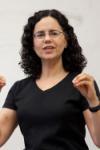 “It is a truth universally acknowledged…” that Pride and Prejudice holds a unique place within English literature. Not only is it a novel that literary scholars return to repeatedly as they work to interpret what Jane Austen accomplishes through her artistry, but it is also a story that continues to engage popular audiences through its many film, television, and literary adaptations. In this course, we will, first, look closely at the novel, placing it within its historical context and investigating what Austen is revealing through her unique style and characterization. Then, we will turn to various adaptations, exploring not only how they help us reflect back on the novel in new ways but also how they engage with the cultures from which they were created. (2 credits, ENGL)
“It is a truth universally acknowledged…” that Pride and Prejudice holds a unique place within English literature. Not only is it a novel that literary scholars return to repeatedly as they work to interpret what Jane Austen accomplishes through her artistry, but it is also a story that continues to engage popular audiences through its many film, television, and literary adaptations. In this course, we will, first, look closely at the novel, placing it within its historical context and investigating what Austen is revealing through her unique style and characterization. Then, we will turn to various adaptations, exploring not only how they help us reflect back on the novel in new ways but also how they engage with the cultures from which they were created. (2 credits, ENGL)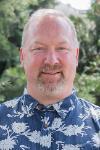
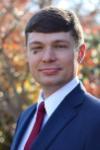 This course explores how neuroscientists study the human brain and the contemporary issues that arise. Lectures and lab experiences will focus on the tools used to study and understand the brain and their impact on understanding human thought, behavior, and emotion. Morning sessions will include lectures and seminar discussions that examine how the central nervous system is understood and related cultural/philosophical issues. Afternoon sessions will involve work with neural specimens, tissue, and other neuroscience lab techniques. (2 credits, NEUR)
This course explores how neuroscientists study the human brain and the contemporary issues that arise. Lectures and lab experiences will focus on the tools used to study and understand the brain and their impact on understanding human thought, behavior, and emotion. Morning sessions will include lectures and seminar discussions that examine how the central nervous system is understood and related cultural/philosophical issues. Afternoon sessions will involve work with neural specimens, tissue, and other neuroscience lab techniques. (2 credits, NEUR)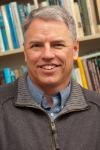 This course explores the field of medical ethics, which looks very closely at some of the moral issues that currently confront medical practitioners. It is taught in the philosophy department because, first, philosophers carefully explore the question, what does it mean to be a human being and what makes a human so valuable? This is absolutely critical to decide in order to know how humans ought to be treated. But this raises the second fundamental question: how can we decide what policies and procedures are morally appropriate for treating human beings? As Christians, we’ll strive for answers that reflect Biblical standards. We’ll do so, however, according to those fundamental moral principles that underwrite biblical guidelines. Some of the specific topics we’ll wrestle with include euthanasia and end-of-life care, fertility and genetic engineering, the role of race and gender in a just treatment, and the merits of human and animal experimentation. (2 credits, PHIL)
This course explores the field of medical ethics, which looks very closely at some of the moral issues that currently confront medical practitioners. It is taught in the philosophy department because, first, philosophers carefully explore the question, what does it mean to be a human being and what makes a human so valuable? This is absolutely critical to decide in order to know how humans ought to be treated. But this raises the second fundamental question: how can we decide what policies and procedures are morally appropriate for treating human beings? As Christians, we’ll strive for answers that reflect Biblical standards. We’ll do so, however, according to those fundamental moral principles that underwrite biblical guidelines. Some of the specific topics we’ll wrestle with include euthanasia and end-of-life care, fertility and genetic engineering, the role of race and gender in a just treatment, and the merits of human and animal experimentation. (2 credits, PHIL)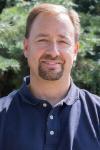
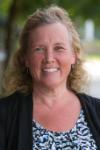 Big things happen in tiny spaces! Themes of nanoscience and nanotechnology span the news cycle, the natural sciences, and other applied areas of STEM, all to the glory of God! This course provides an interdisciplinary introduction to the field by engaging students in hands-on laboratory learning, while making specific connection to foundational ideas in biology, chemistry, and physics. Classroom learning sessions include, “What is Nanoscience and Nanotechnology?,” “Nanoscale Biology,” “Nanoscale Chemistry,” and “Nanoscale Physics,” as well as “Philosophical and Ethical Issues within Nanoscience.” Laboratory sessions will allow students to investigate the brilliant nanoscale features of butterfly wings, unveil size-dependent phenomena in Qdots, and participate in the latest government-sponsored research concerning biologically inspired nanovalves. Successful completion of a high school chemistry, biology, or physics course is recommended prior to taking this course. (2 credits, CHEM)
Big things happen in tiny spaces! Themes of nanoscience and nanotechnology span the news cycle, the natural sciences, and other applied areas of STEM, all to the glory of God! This course provides an interdisciplinary introduction to the field by engaging students in hands-on laboratory learning, while making specific connection to foundational ideas in biology, chemistry, and physics. Classroom learning sessions include, “What is Nanoscience and Nanotechnology?,” “Nanoscale Biology,” “Nanoscale Chemistry,” and “Nanoscale Physics,” as well as “Philosophical and Ethical Issues within Nanoscience.” Laboratory sessions will allow students to investigate the brilliant nanoscale features of butterfly wings, unveil size-dependent phenomena in Qdots, and participate in the latest government-sponsored research concerning biologically inspired nanovalves. Successful completion of a high school chemistry, biology, or physics course is recommended prior to taking this course. (2 credits, CHEM)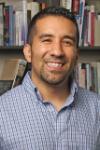 In this course, we will study some of the fundamentals of economics, including concepts such as ownership, prices, opportunity cost, supply and demand, and money (just economics). We will then build on our foundational understanding to reflect on normative questions (Just Economics). What should the objective of society be? How do we evaluate whether one outcome is better than another? And how does our faith influence our decisions? Along the way, we will enrich our exploration using real-world examples. How do we allocate limited vaccines? How do I determine what college to attend? How should we determine who gets into a particular class? Who can live in my neighborhood…or my country? (2 credits, ECON)
In this course, we will study some of the fundamentals of economics, including concepts such as ownership, prices, opportunity cost, supply and demand, and money (just economics). We will then build on our foundational understanding to reflect on normative questions (Just Economics). What should the objective of society be? How do we evaluate whether one outcome is better than another? And how does our faith influence our decisions? Along the way, we will enrich our exploration using real-world examples. How do we allocate limited vaccines? How do I determine what college to attend? How should we determine who gets into a particular class? Who can live in my neighborhood…or my country? (2 credits, ECON)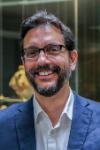 “Who do you say I am?” (Mt 16:15) continues to be the central question of the Christian faith with unique implications on salvation, redemption, and restoration. In this course we will explore how the New Testament and early Christians tried to identify and articulate a new "grammar of faith" that could both affirm the divinity of Christ (and the Holy Spirit) whilst at the same time confess God as one-in-three Persons without falling into polytheism. (2 credits, BITH)
“Who do you say I am?” (Mt 16:15) continues to be the central question of the Christian faith with unique implications on salvation, redemption, and restoration. In this course we will explore how the New Testament and early Christians tried to identify and articulate a new "grammar of faith" that could both affirm the divinity of Christ (and the Holy Spirit) whilst at the same time confess God as one-in-three Persons without falling into polytheism. (2 credits, BITH)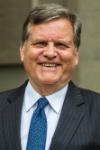 Wheaton College has prepared people for ministry since its founding. This course will help young people to consider and explore a calling to a full-time ministry or how to make their marketplace or professional career a ministry. There will be lectures from and discussions with Wheaton professors, Billy Graham Scholars from around the world, pastors, and representatives from mission agencies and para-church organizations. There will be exercises to help the students know and share their faith and to develop a pastoral and world Christian perspective. Students will put those ministry skills into practice on each other in the context of a comfortable but challenging classroom community. (2 credits, CFM)
Wheaton College has prepared people for ministry since its founding. This course will help young people to consider and explore a calling to a full-time ministry or how to make their marketplace or professional career a ministry. There will be lectures from and discussions with Wheaton professors, Billy Graham Scholars from around the world, pastors, and representatives from mission agencies and para-church organizations. There will be exercises to help the students know and share their faith and to develop a pastoral and world Christian perspective. Students will put those ministry skills into practice on each other in the context of a comfortable but challenging classroom community. (2 credits, CFM)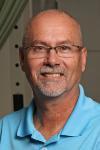 This course explores how the human body responds to exercise. Lectures and lab experiences will focus on basic cardiovascular, respiratory, and muscular responses. Morning sessions will include lectures and seminar discussions while afternoon sessions will primarily involve laboratory experiences where students will serve as their own study subjects! These labs will allow students to get a better sense of their own cardiovascular, respiratory and muscular health.
This course explores how the human body responds to exercise. Lectures and lab experiences will focus on basic cardiovascular, respiratory, and muscular responses. Morning sessions will include lectures and seminar discussions while afternoon sessions will primarily involve laboratory experiences where students will serve as their own study subjects! These labs will allow students to get a better sense of their own cardiovascular, respiratory and muscular health. 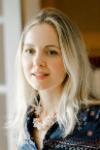
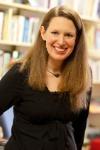 The Harry Potter series has been a global phenomenon, read by children and adults worldwide. Its success is easy to understand, given Rowling’s masterful storytelling. Under the surface of the entertaining stories is, however, substantive engagement with a variety of literary forms and long-standing symbolic traditions. This course will look at some of the literary features of the series, looking particularly at how the series may interact with Christian theological conversations such as the problem of evil, the nature of faith, visions of conversion and coming into life with Christ, and the virtue of hope. (2 credits, ENGL)
The Harry Potter series has been a global phenomenon, read by children and adults worldwide. Its success is easy to understand, given Rowling’s masterful storytelling. Under the surface of the entertaining stories is, however, substantive engagement with a variety of literary forms and long-standing symbolic traditions. This course will look at some of the literary features of the series, looking particularly at how the series may interact with Christian theological conversations such as the problem of evil, the nature of faith, visions of conversion and coming into life with Christ, and the virtue of hope. (2 credits, ENGL)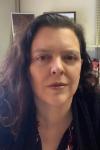
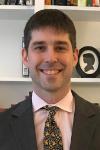
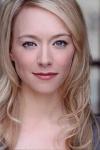 In this course, English and
In this course, English and 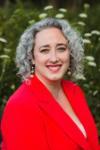 This course enables students to think more deeply about God, the Bible, and their life of discipleship. During the first week, students will learn how to read and teach the Bible with clarity and insight. During the second week, students will reflect on important Christian doctrines with the aim growing in love for God and their neighbors. (2 credits, BITH)
This course enables students to think more deeply about God, the Bible, and their life of discipleship. During the first week, students will learn how to read and teach the Bible with clarity and insight. During the second week, students will reflect on important Christian doctrines with the aim growing in love for God and their neighbors. (2 credits, BITH)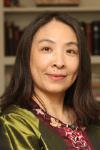 Chinese may be archaic, but that is part of its magic. Learning the strange-looking Chinese scripts invites learners to partake in a conversation that is centuries old. This course builds your familiarity with the Chinese alphabet and its phonetic system called pinyin, throwing in practical tips and useful tricks at every step. You will be introduced to a tonal language with ear training exercises and playful experimentation. You will learn to use your mouth shape, tongue placement, and air flow while practicing the pronunciation. Manageable sets and groupings of the pinyin letters, songs, and mnemonic devices make pinyin easily digestible and as simple as ABC. You might even get a pinyin earworm stuck in your ear or head on repeat weeks after! So, come for a ridiculously fun time and master Chinese pinyin in two weeks. (2 credits, CHIN)
Chinese may be archaic, but that is part of its magic. Learning the strange-looking Chinese scripts invites learners to partake in a conversation that is centuries old. This course builds your familiarity with the Chinese alphabet and its phonetic system called pinyin, throwing in practical tips and useful tricks at every step. You will be introduced to a tonal language with ear training exercises and playful experimentation. You will learn to use your mouth shape, tongue placement, and air flow while practicing the pronunciation. Manageable sets and groupings of the pinyin letters, songs, and mnemonic devices make pinyin easily digestible and as simple as ABC. You might even get a pinyin earworm stuck in your ear or head on repeat weeks after! So, come for a ridiculously fun time and master Chinese pinyin in two weeks. (2 credits, CHIN)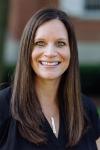
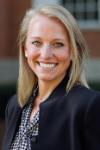 In this course, aspiring elementary teachers will learn about innovative uses of technology in the classroom. Morning sessions will investigate current technology integration practices in elementary classrooms, focusing on the benefits and principles behind technology integration. Afternoon sessions will provide students with the opportunity to design and test lesson plans in peer groups, applying new knowledge to practice. Through this coursework, students will gain exposure to the best practices taught in the Wheaton College Education Department. Students will also discuss concepts of Digital Citizenship and gain insight into ways they can glorify God through engagement with technology in their future classrooms.
In this course, aspiring elementary teachers will learn about innovative uses of technology in the classroom. Morning sessions will investigate current technology integration practices in elementary classrooms, focusing on the benefits and principles behind technology integration. Afternoon sessions will provide students with the opportunity to design and test lesson plans in peer groups, applying new knowledge to practice. Through this coursework, students will gain exposure to the best practices taught in the Wheaton College Education Department. Students will also discuss concepts of Digital Citizenship and gain insight into ways they can glorify God through engagement with technology in their future classrooms.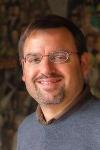 This course explores the history of Latin American immigration to the Chicago metropolitan area and highlights contributions of the diverse communities and some key challenges they face. The course will incorporate readings from multiple disciplines in the field of Latin American and Latino/a Studies. As part of the course, students will visit a local community and interact with community members. The course will be conducted in English. (2 credits, LALS)
This course explores the history of Latin American immigration to the Chicago metropolitan area and highlights contributions of the diverse communities and some key challenges they face. The course will incorporate readings from multiple disciplines in the field of Latin American and Latino/a Studies. As part of the course, students will visit a local community and interact with community members. The course will be conducted in English. (2 credits, LALS)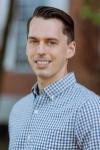 Can the power of data science be used to benefit the mission of the Church and society? How do these tools help (or hinder!) causes of justice and equity? This course is both a hands-on introduction to the basics of Python programming for data science—data wrangling, visualization, and statistical methods—as well as a look at how these tools may be used to better understand God’s world. No previous programming experience is required. (2 credits, MATH)
Can the power of data science be used to benefit the mission of the Church and society? How do these tools help (or hinder!) causes of justice and equity? This course is both a hands-on introduction to the basics of Python programming for data science—data wrangling, visualization, and statistical methods—as well as a look at how these tools may be used to better understand God’s world. No previous programming experience is required. (2 credits, MATH)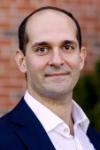 “I attest that there is only one God and Muhammad is God’s messenger.” These words have resonated in in the hearts and minds of Muslims for over one thousand years. It is likely that in the near future Islam will be the largest religion in the world, with Christianity coming in at second. As Christians we are called to love our neighbors and live the Gospel, especially with those who we see as particularly different from us. Yet, in order to fulfill our Christian calling we must understand our neighbor. What do Muslims believe? Why do Muslims have these beliefs? What is the history of Christian-Muslim relations and how does this history affect us today? What do Muslims think about Christianity and Christians. This course gives students a foundation for understanding the beliefs, practices, and lived experiences of Muslims from around the world in order to become better global citizens and faithful followers of Jesus.” (2 credits, RELI)
“I attest that there is only one God and Muhammad is God’s messenger.” These words have resonated in in the hearts and minds of Muslims for over one thousand years. It is likely that in the near future Islam will be the largest religion in the world, with Christianity coming in at second. As Christians we are called to love our neighbors and live the Gospel, especially with those who we see as particularly different from us. Yet, in order to fulfill our Christian calling we must understand our neighbor. What do Muslims believe? Why do Muslims have these beliefs? What is the history of Christian-Muslim relations and how does this history affect us today? What do Muslims think about Christianity and Christians. This course gives students a foundation for understanding the beliefs, practices, and lived experiences of Muslims from around the world in order to become better global citizens and faithful followers of Jesus.” (2 credits, RELI)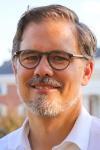 Is beauty more than good looks? Is truth more than science? Is love more than romance? As human beings, we have a God-given desire for happiness, but we often don’t know how to find it. In this course, we will examine the nature of beauty, truth, and love, and discover how they can change our lives for the better. This course will be highly interactive, incorporating small and large-group discussions, hilarious stories, deep thinking, outrageous white board drawings, and dynamic guest speakers.
Is beauty more than good looks? Is truth more than science? Is love more than romance? As human beings, we have a God-given desire for happiness, but we often don’t know how to find it. In this course, we will examine the nature of beauty, truth, and love, and discover how they can change our lives for the better. This course will be highly interactive, incorporating small and large-group discussions, hilarious stories, deep thinking, outrageous white board drawings, and dynamic guest speakers. 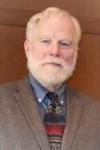 C. S. Lewis was arguably the most influential Christian writer in the twentieth century, and his legacy continues undiminished in our own time. His works of fiction showcase his unique blend of intellect and imagination, blending Christian theology, otherworldly fantasy, and shrewd psychology. In this course, we will read Out of the Silent Planet, The Great Divorce, The Lion, the Witch, and the Wardrobe, and The Magician’s Nephew to explore how Lewis engages the mind and heart of the reader, in deceptively simply fantasy stories. (2 credits, ENGL)
C. S. Lewis was arguably the most influential Christian writer in the twentieth century, and his legacy continues undiminished in our own time. His works of fiction showcase his unique blend of intellect and imagination, blending Christian theology, otherworldly fantasy, and shrewd psychology. In this course, we will read Out of the Silent Planet, The Great Divorce, The Lion, the Witch, and the Wardrobe, and The Magician’s Nephew to explore how Lewis engages the mind and heart of the reader, in deceptively simply fantasy stories. (2 credits, ENGL)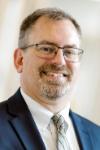 The strength of mathematics stems from the completely rigorous deductive reasoning (proof) that supports it claims (theorems). Consequently, proofs play a central role in all advanced mathematics. After an introduction to logic and set theory, this course introduces proof techniques: direct proofs, proofs by contradiction, algorithm proofs, proofs by induction, that together provide a rigorous foundation for mathematics.” Successful completion of a high school pre-calculus course is recommended prior to taking this course. (2 credits, MATH)
The strength of mathematics stems from the completely rigorous deductive reasoning (proof) that supports it claims (theorems). Consequently, proofs play a central role in all advanced mathematics. After an introduction to logic and set theory, this course introduces proof techniques: direct proofs, proofs by contradiction, algorithm proofs, proofs by induction, that together provide a rigorous foundation for mathematics.” Successful completion of a high school pre-calculus course is recommended prior to taking this course. (2 credits, MATH)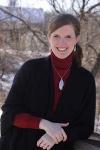
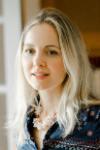 How do stories arise? What forms can they take? How do I share my stories with a wider audience? This fiction writing workshop explores writing fiction from the blank page to publication. Participants explore a variety of forms of fiction (flash fiction, short stories, novels, screenplays, & playwriting) through writing their own work. In addition to participating in workshops led by a professional writer, students will hear from those in the publishing industry about the process of publishing. Participants will workshop their project and have one-on-one coaching from the workshop leader. The two weeks will include inspirational writing excursions, an open mic opportunity, and a chance to contribute to the workshop’s online anthology. The session concludes with a reading for family and friends. (2 credits, ENGW)
How do stories arise? What forms can they take? How do I share my stories with a wider audience? This fiction writing workshop explores writing fiction from the blank page to publication. Participants explore a variety of forms of fiction (flash fiction, short stories, novels, screenplays, & playwriting) through writing their own work. In addition to participating in workshops led by a professional writer, students will hear from those in the publishing industry about the process of publishing. Participants will workshop their project and have one-on-one coaching from the workshop leader. The two weeks will include inspirational writing excursions, an open mic opportunity, and a chance to contribute to the workshop’s online anthology. The session concludes with a reading for family and friends. (2 credits, ENGW)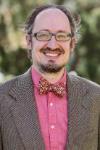
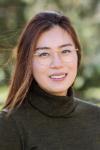 Throughout history artists and designers have invented and embraced new technologies, finding new and experimental ways to envision the world. In this studio art course, students will create their own tools and explore ways to reinvent existing methods of making. Personal expression, the visual communication of messages, and collaboration will be encouraged via some of the following: laser cutting, Risograph printing, gestural mark making, digital photography, letterpress printing, spray painting, concrete casting, hand lettering, paper crafting, stop motion animation, book making, and more. (2 credits, ART)*
Throughout history artists and designers have invented and embraced new technologies, finding new and experimental ways to envision the world. In this studio art course, students will create their own tools and explore ways to reinvent existing methods of making. Personal expression, the visual communication of messages, and collaboration will be encouraged via some of the following: laser cutting, Risograph printing, gestural mark making, digital photography, letterpress printing, spray painting, concrete casting, hand lettering, paper crafting, stop motion animation, book making, and more. (2 credits, ART)*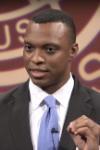
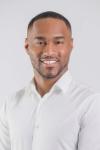 On August 11, 1973, a Jamaican-American named Clive Campbell hosted a house party at 1520 Sedgwick Avenue in the Bronx with little more than a couple of turntables and amplifiers. Music and cultural historians often regard Campbell’s party as the founding event for what has come to be known as hip-hop. Almost fifty years later, hip-hop thrives as one of the most popular, yet controversial, forms of cultural expression in contemporary society with footholds in music, fashion, art, business, activism, and politics around the globe.
On August 11, 1973, a Jamaican-American named Clive Campbell hosted a house party at 1520 Sedgwick Avenue in the Bronx with little more than a couple of turntables and amplifiers. Music and cultural historians often regard Campbell’s party as the founding event for what has come to be known as hip-hop. Almost fifty years later, hip-hop thrives as one of the most popular, yet controversial, forms of cultural expression in contemporary society with footholds in music, fashion, art, business, activism, and politics around the globe.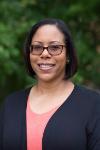 This course will examine Caribbean literature with respect to history, language, culture, diaspora, creolization, and globalization. Students will investigate the commonalities and the contrasts that emerge in the writings from these ethnically and linguistically diverse societies. Students will also become familiar with key words and terms associated with literature of the Caribbean while analyzing authors and critics from the region. (2 credits, ENGL)
This course will examine Caribbean literature with respect to history, language, culture, diaspora, creolization, and globalization. Students will investigate the commonalities and the contrasts that emerge in the writings from these ethnically and linguistically diverse societies. Students will also become familiar with key words and terms associated with literature of the Caribbean while analyzing authors and critics from the region. (2 credits, ENGL)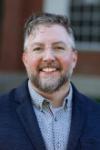 A critical survey of the visual arts equips students to navigate the contemporary visual age. With a historical and material focus, Art Survey entails an investigation into visual modes of thought. This course is inspired by the words of the Psalmist: “Be Still and Know That I Am God,” (Psalm 46:10). Our hope is that in training students to engage in slow looking with art we are simultaneously training ourselves in cultivating attention to God in prayer. (2 credits)
A critical survey of the visual arts equips students to navigate the contemporary visual age. With a historical and material focus, Art Survey entails an investigation into visual modes of thought. This course is inspired by the words of the Psalmist: “Be Still and Know That I Am God,” (Psalm 46:10). Our hope is that in training students to engage in slow looking with art we are simultaneously training ourselves in cultivating attention to God in prayer. (2 credits) In this class you will learn the inner theory of music and how it works including fundamental music concepts of notation, rhythm, meter, timbre, pitch, scales, keys, intervals, and chords. This exploration of music theory will include analysis Aural Skills (ear-training and sight-singing); and music composition. We will also listen to and enjoy music from a variety of genres: classical, jazz, and folk music from local and world contexts. (2 credits)
In this class you will learn the inner theory of music and how it works including fundamental music concepts of notation, rhythm, meter, timbre, pitch, scales, keys, intervals, and chords. This exploration of music theory will include analysis Aural Skills (ear-training and sight-singing); and music composition. We will also listen to and enjoy music from a variety of genres: classical, jazz, and folk music from local and world contexts. (2 credits) In this course, talented young musicians will study with Wheaton College music faculty in private and group lessons, master classes, and performance experiences. The course provides tools to guide young artists as they grow in their faith and understanding of what it means to be a Christian musician. Activities on campus will include faculty recitals, student performances, and repertoire study. Students will explore the arts in the city of Chicago with possible visits to the Art Institute, the Grant Park Symphony, and more. (2 credits)
In this course, talented young musicians will study with Wheaton College music faculty in private and group lessons, master classes, and performance experiences. The course provides tools to guide young artists as they grow in their faith and understanding of what it means to be a Christian musician. Activities on campus will include faculty recitals, student performances, and repertoire study. Students will explore the arts in the city of Chicago with possible visits to the Art Institute, the Grant Park Symphony, and more. (2 credits)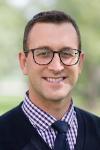 Speak, friend, and enter! This course journeys to J.R.R. Tolkien’s Middle Earth to explore the doctrine of creation, issues of stewardship and creation care, and human creativity. During our time together, we’ll discuss Tolkien’s creation story alongside the biblical account, influences on his writing and his processes of world-building, his meditations on fairy-stories and sub-creation, and his concern for nature and the environment. We’ll also watch selections from Peter Jackson’s LOTR films, considering how Jackson creatively adapted Tolkien’s world to the screen. At the end of the course, we’ll turn to “the end of all things,” reflecting on the topic of new creation and looking to the Alpha and Omega who declares, “Behold! I am making all things new!” (2 credits, ENGL)
Speak, friend, and enter! This course journeys to J.R.R. Tolkien’s Middle Earth to explore the doctrine of creation, issues of stewardship and creation care, and human creativity. During our time together, we’ll discuss Tolkien’s creation story alongside the biblical account, influences on his writing and his processes of world-building, his meditations on fairy-stories and sub-creation, and his concern for nature and the environment. We’ll also watch selections from Peter Jackson’s LOTR films, considering how Jackson creatively adapted Tolkien’s world to the screen. At the end of the course, we’ll turn to “the end of all things,” reflecting on the topic of new creation and looking to the Alpha and Omega who declares, “Behold! I am making all things new!” (2 credits, ENGL)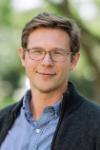
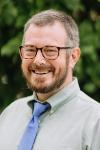 Peter's first letter enjoins Christians always to be ready "to make your defense to anyone who asks you for a reason for the hope that is in you" (1 Pet. 3:15, ESV). Peter's word "defense" is apologia — so Peter is commending, in some sense, apologetics. But in what sense? Christian theologians and philosophers have differed considerably in their understanding of what it might mean to give a "reason" (logos) for the hope that is in us. Does this mean we should try to prove what we believe by faith? That we should reason about such theological matters such as divine providence or the incarnation? Or is faith something different — say, a trusting "leap" into what might seem by worldly standards irrational (or even absurd!)? This course will introduce students to the ways four great Christian thinkers have approached questions such as these: Thomas Aquinas, Blaise Pascal, Søren Kierkegaard and Fyodor Dostoevsky. Its co-teachers disagree, to some extent, about the "right" answers, so our aim will be partly practical: modeling for students what charitable disagreement and dialogue can look like. (2 credits, PHIL)
Peter's first letter enjoins Christians always to be ready "to make your defense to anyone who asks you for a reason for the hope that is in you" (1 Pet. 3:15, ESV). Peter's word "defense" is apologia — so Peter is commending, in some sense, apologetics. But in what sense? Christian theologians and philosophers have differed considerably in their understanding of what it might mean to give a "reason" (logos) for the hope that is in us. Does this mean we should try to prove what we believe by faith? That we should reason about such theological matters such as divine providence or the incarnation? Or is faith something different — say, a trusting "leap" into what might seem by worldly standards irrational (or even absurd!)? This course will introduce students to the ways four great Christian thinkers have approached questions such as these: Thomas Aquinas, Blaise Pascal, Søren Kierkegaard and Fyodor Dostoevsky. Its co-teachers disagree, to some extent, about the "right" answers, so our aim will be partly practical: modeling for students what charitable disagreement and dialogue can look like. (2 credits, PHIL)